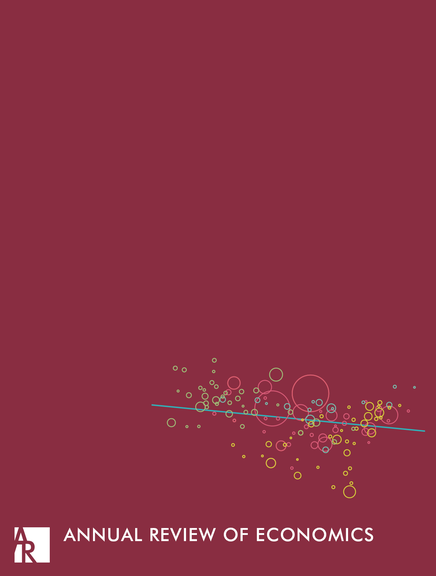The Econometric Model for Causal Policy Analysis.
IF 11.4
2区 经济学
Q1 ECONOMICS
引用次数: 8
Abstract
This paper discusses the econometric model of causal policy analysis and two alternative frameworks that are popular in statistics and computer science. By employing the alternative frameworks uncritically, economists ignore the substantial advantages of an econometric approach, resulting in less informative analyses of economic policy. We show that the econometric approach to causality enables economists to characterize and analyze a wider range of policy problems than alternative approaches.
因果政策分析的计量经济学模型。
本文讨论了因果政策分析的计量经济学模型以及在统计学和计算机科学中流行的两种替代框架。通过不加批判地使用替代框架,经济学家忽略了计量经济学方法的实质性优势,导致对经济政策的信息分析较少。我们表明,因果关系的计量经济学方法使经济学家能够比其他方法更广泛地描述和分析政策问题。
本文章由计算机程序翻译,如有差异,请以英文原文为准。
求助全文
约1分钟内获得全文
求助全文
来源期刊

Annual Review of Economics
ECONOMICS-
CiteScore
9.70
自引率
3.60%
发文量
34
期刊介绍:
The Annual Review of Economics covers significant developments in the field of economics, including macroeconomics and money; microeconomics, including economic psychology; international economics; public finance; health economics; education; economic growth and technological change; economic development; social economics, including culture, institutions, social interaction, and networks; game theory, political economy, and social choice; and more.
 求助内容:
求助内容: 应助结果提醒方式:
应助结果提醒方式:


